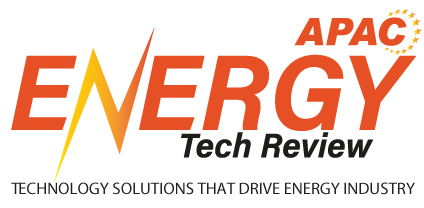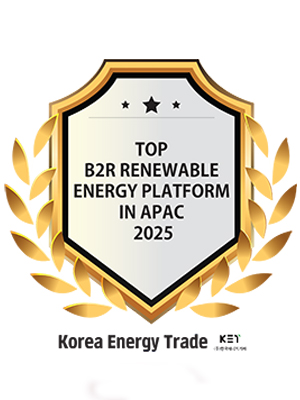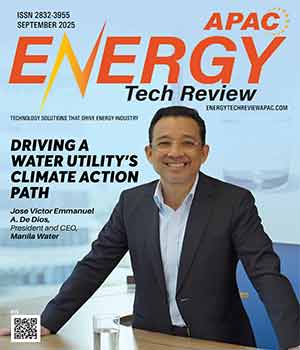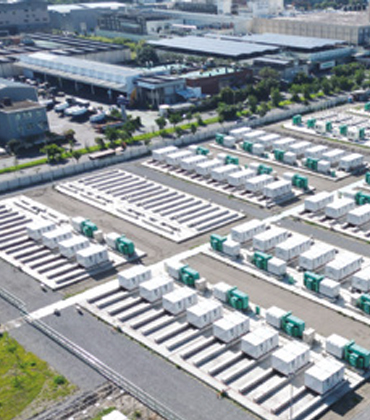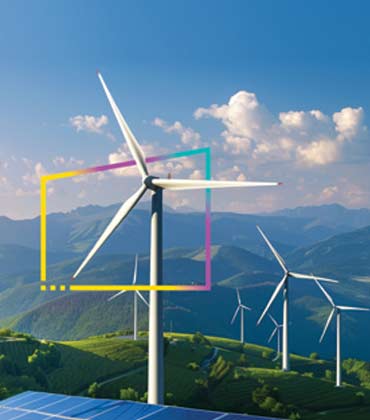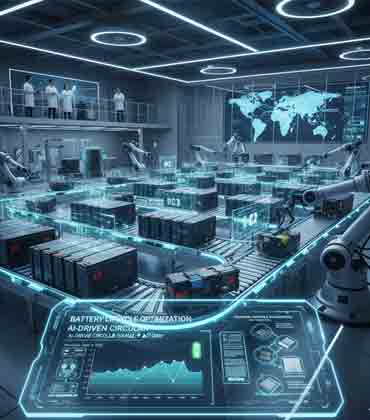Southeast Asia, with its diverse landscape, is at the forefront of dealing with the effects of climate change. We encounter a range of climate challenges, including rising temperatures, altered rainfall patterns, intensified tropical storms, and more frequent floods. These weather shifts impact various aspects of life, such as the environment, agriculture, and water management. Responding to the distinctive challenges posed by Southeast Asia's climate, Manila Water has elevated climate action to a fundamental commitment by issuing a comprehensive Climate Change Policy across the group. This policy, established as early as 2007, has evolved over the years, aligning with emerging trends, scientific research, and regulatory policies. At its core, our climate action emphasizes four key components, adaptation, resource efficiency, transition to renewable energy, and wastewater management. Adaptation With a focus on adaptation, we prioritize water security, asset resilience, and eme
Top B2R Renewable Energy Platform 2025
Every meaningful shift toward a cleaner future begins with responsibility. It is the kind that drives industries, governments, and communities to act with purpose. Similarly, Korea Energy Trade was founded on this belief, embracing the notion that sustainable energy is not just an option but the foundation for a better tomorrow. Despite its short history, the company’s leadership draws on decades of proven expertise in the energy sector. This blend of fresh vision and seasoned experience enables Korea Energy Trade to bridge the gap between ambition and execution, delivering forward-thinking strategies anchored in real-world industry insight. Its mission rests on two core pillars. The B2R platform is a first-of-its-kind digital bridge connecting businesses directly with renewable energy providers, simplifying clean power adoption. The second is the R business, which develops and supplies eco-friendly electricity through advanced power generation projects. Together, they turn sustainability commitments into measurable, impactful results. From Samsung Group to mid-sized automotive, electronics, and heavy industry manufacturers, Korea Energy Trade is recognized for its partnership-driven approach, listening first, and then tailoring solutions that align environmental responsibility with business growth. “Our vision is to help high-energy-consuming businesses, rather than households or shops, transition to renewable energy,” says Yusang Kim, Managing Director, Korea Energy Trade. Turning Clean Energy Goals into Lasting Impact Through its innovative B2R platform, Korea Energy Trade streamlines access to vetted power generation projects, delivering scalable solutions like power purchase agreements (PPAs), rooftop solar leasing, and green investment opportunities. Another key differentiator lies in its relationships. The company recognizes that the shift to 100 percent renewable energy is not a single event but an ongoing journey that demands commitment, expertise, and adaptability. Korea Energy Trade offers continuous advisory services to support clients on this journey, ensuring organizations can confidently navigate evolving energy systems and regulatory landscapes. This role is vital for small and medium-sized enterprises (SMEs), where limited resources and the absence of specialized teams hinder sustainable energy adoption. Acting as an outsourced energy transition partner, it makes the process both manageable and impactful, removing barriers that prevent SMEs from embracing renewable solutions. .
Power Generation
Growing in tandem with Taiwan’s dynamic energy storage industry, Recharge Power has emerged as the largest and leading company in this sector. Its impressive track record speaks for itself. With over 600 megawatt-hours of energy storage systems installed across Taiwan and the distinction of leading Taiwan’s first automatic frequency control (AFC) demo project, Recharge Power’s deep-rooted involvement with Taipower and Taiwan’s energy administration has cemented its position as a key player in the nation’s energy transformation. From inception to completion, Recharge Power orchestrates every facet of the energy storage process. It begins with securing essential permits and lease agreements, determining optimal battery size and designing complex electrical and civil works. The company’s financial team then conducts comprehensive assessments and builds robust financial models, ensuring the viability and profitability of each project. Meanwhile, the in-house software engineers, armed with profound industry knowledge, craft flexible turnkey solutions tailored to client needs. Strategic collaborations with financial institutions further bolster the company’s capacity to deliver high-performing, cost-effective solutions. This collaboration extends beyond project completion, as Recharge Power continues to support its clients with dedicated operation and maintenance (O&M) services and power trading service aggregation, ensuring long-term success and reliability. In 2020, Recharge Power achieved a milestone by completing Taiwan’s first utility-scale energy storage project. This project continues to operate with exceptional quality and service, having a service performance index (SPI) averaging 99.96 percent, significantly surpassing Taipower’s requirement of 95 percent. Additionally, Recharge Power spearheaded the Luyuan project, Taipower’s first financial procurement bidding program, delivering superior automatic frequency control services. This project marked Taipower’s first selfbuilt online system.
CXO INSIGHTS

Why adopt Operational Readiness for your projects?
Greg Roberts, Asset Management Lead, Verbrec Ltd [ASX: VBC]
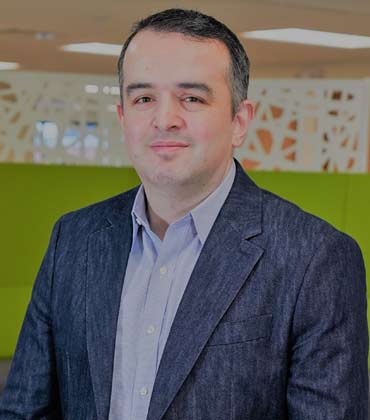
Elevating Your Compliance-Based EHS Programs to Risk-Based EHS Programs
Ergin Akbas, Senior Manager - EHS Management Systems, AVANGRID

The Broader View of Sustainability!
Dominic Dowling, Global Head of Sustainability & Risk, EDL

Real - Time Monitoring And Digital Twin - The Future For Water Industry
Zaki Najmuddin, Head of Project and Asset Management, Syarikat Air Terengganu (SATU) Sdn. Bhd

The Role of Leadership in Cultivating an Inclusive Safety Culture in Electric Utilities
Courtney Allen, Director, Electric Operations, PECO

Innovation in Renewable Energy Asset Management
Robert Gomez, Head of Onshore Asset Management, Ørsted [CPH: ORSTED]
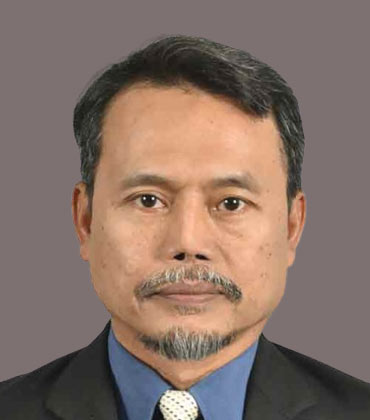
Building a Resilient Future through Technology
Mohd Hanapi Bisri, Head of Group ICT, Petra Energy Berhad

Evolving Energy Choices with the Customer in Mind
Leslie Myers, Product Manager, Renewables, Puget Sound Energy

The Katanes Green Ammonia Project
Tryggvi Thor Herbertsson, Global Head of Hydrogen Strategy and Partnership, Qair Group
IN FOCUS
B2R Platforms Reshaping APAC's Power Future
B2R platforms are fundamentally reshaping the relationship between individuals, communities, and the energy grid in the APAC driving a future that is more secure, sustainable, and equitable.
AI Meets Circular Energy: Unlocking Efficiency in Resource Recovery and Reuse in APAC
The APAC region can achieve sustainable energy through the integration of AI and circular economy principles, optimizing resource recovery, waste heat management, and creating economic opportunities while minimizing environmental impacts.
EDITORIAL
A Smarter Path to Renewable Power
Across APAC, B2R renewable energy platforms are quietly transforming how clean power reaches businesses and communities. By linking companies directly to renewable assets, these platforms are helping countries accelerate their decarbonization efforts while making energy markets more efficient and transparent. Digital marketplaces and dashboards make the process of origination, contracting, and settlement smoother, cutting through friction, unlocking corporate demand, and allowing renewable projects to grow faster. The result is a system where climate goals and commercial clarity move together.
The momentum is coming from multiple directions. Policy changes and improved grid access are opening new paths for corporate procurement, from virtual and physical power purchase agreements to community-based aggregation and renewable energy certificates. Advances in technology, including AI-driven forecasting and digital monitoring, are making energy yield more predictable and compliance easier, reducing risk for both lenders and project sponsors. At the same time, storage solutions, flexible demand, and distributed generation are expanding the markets that B2R platforms can serve, offering tailored clean-power solutions to both large enterprise campuses and multi-site SMEs.
For companies, the benefits show up quickly in portfolio-wide visibility of emissions, more predictable long-term energy costs, and credible progress toward science-based targets. Developers experience faster sales cycles, more diverse offtake, and better access to blended financing, along with greater transparency around performance and interconnection. As energy demand grows across APAC, particularly from data centers and industrial hubs, B2R platforms are proving to be a practical and scalable way to bring more renewable energy online, even as market conditions continue to evolve.
This edition spotlights insights from Damien Dupont, Renewable Energy Manager at Watercare Services, and Bruce Fleming, Executive Vice President at Montana Renewables, who trace the contours of a system in transition—cleaner, smarter, more flexible, and ultimately more investable. We believe their insights will help you make better business decisions.
